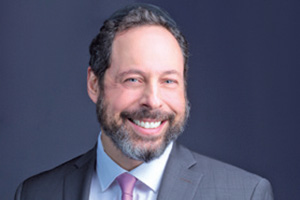
One of the central actions of Yom Kippur is to admit wrongdoing as a way of achieving atonement. As we pray we detail a long list of misdeeds, including misuse of speech, mistreatment of others, and abuse of authority and power. In prayer after prayer we bend our backs and beat our chests, listing sin upon sin in hope of attaining divine clemency.
As I do every year, I made a firm commitment on this past Yom Kippur to try and improve my ways and not repeat past errors. Though I tried my best to mention any personal sins that were not already detailed in the text, I realized afterward that I had missed one. Ironically, it was the halacha (ritualistic law) to build a sukkah the night after Yom Kippur. I have never once fulfilled this halacha properly.
We are told to begin building the night following a day of fasting and repentance so that we can transition “from one mitzvah to another.” Certainly, we can understand and appreciate the importance of keeping our feet on the spiritual pedal and racking up as many mitzvot as possible, particularly after spending many days engaged in solemn introspection.
Yet, while quite a few Jews faithfully observe this halacha, I know that many do not. Some, like me, may have a hard enough time building their sukkah in broad daylight, let alone while groping in the dark. Others may feel too tired and drained after a long day of prayer and introspection.
Excuses aside, my reflection about this halacha led me to the following question. If we are simply supposed to begin the process of accumulating mitzvot, why did our sages select this particular one to focus on? Sure, I understand that Sukkot is the next holiday in a packed month and that this halacha just “fits” in that sense. But I thought that perhaps there is something additional about this mitzvah that makes it such a perfect follow-up to the special day of Yom Kippur.
I would like to offer a suggestion that flies in the face of what our host society preaches. Citizens of this great land are told to work hard, believe in ourselves, and fulfill the American dream that awaits us all. We learn early on to respect the ones who have the right answers, can fend for themselves and become great successes, financially and in other regards. In contrast, those who are needy and vulnerable are to be pitied and are too often looked down upon.
But Judaism sheds a different light on vulnerability. While we also maintain that those who suffer or are lacking are to receive our compassionate assistance, we don’t identify with them (or at least we shouldn’t) as “others” who are fundamentally inferior to ourselves. Yom Kippur makes abundantly clear that we stand together before Hashem equally, waiting to be counted and judged by our Maker. We recognize deeply and personally that none of us could achieve any meaningful outcome without His abundant mercy and support. There are no classes before Him when we beseech for divine compassion. Nor do we divide into groups of “haves” and “have nots” as we scream the final pesukim at the end of Neilah. Before Him we are all equally vulnerable and in need of salvation.
Sukkot reinforces this idea of vulnerability. For a week we sit under a flimsy roof, one that is incapable of shielding us from the elements or offering any bodily protection. We look up at the sky and are reminded that despite all of our achievements, we would have nothing if not for Him. “That He will hide me in His tabernacle (sukkah) on the day of calamity; He will conceal me in the secrecy of His tent; He will lift me up on a rock” (Tehillim 27:5). By instructing us to build our sukkahs in the dark of night, after a long day of baring our souls and promising improvement, our sages help us connect even more deeply to our vulnerable positions.
(Of course, this vulnerability should not be understood as the paralyzing form expressed in some religions. They teach that man is incapable of overcoming his limitations and must make his way to the afterlife as beneficiaries of outside salvation. We, in sharp contrast, believe that we are all capable and responsible to overcome our struggles and make a meaningful life for ourselves. However, we recognize that without divine assistance and compassion we would invariably fall short.)
This year when you sit in your sukkah, remember this important lesson. There is no one who is so powerful, wealthy, smart or accomplished as to not need God. No matter what we have achieved materially or spiritually, we all must make ourselves vulnerable so as to properly and humbly account for our misdeeds and chart a new path forward. Then, as we return to “life as normal,” we become empowered by the realization that we can overcome any limitations or uncertainty and fear that may otherwise grip us by latching onto the one Rock that can weather any and all storms and bring us to the day of final redemption.
Naphtali Hoff, PsyD, is an executive coach and president of Impactful Coaching & Consulting. For a free, no-obligation consultation, please call 212.470.6139 or email [email protected]. Check out his new leadership book “Becoming the New Boss” on Amazon and on the book site, BecomingtheNewBoss.com. Download his free eBook for understaffed leaders at ImpactfulCoaching.com/EPIC.










